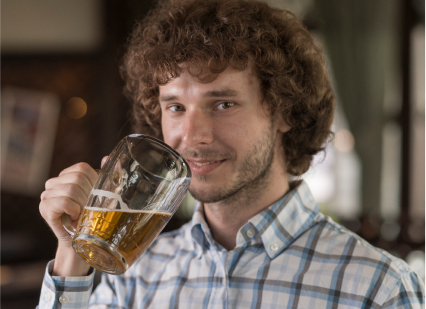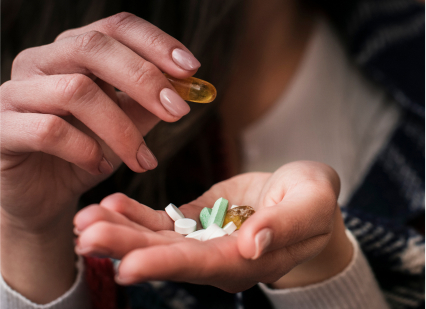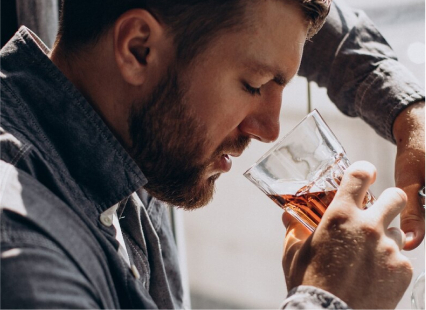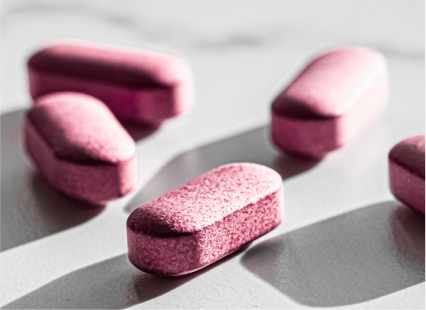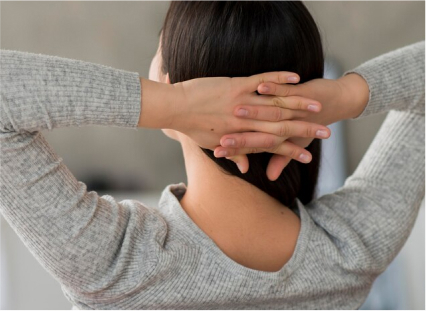Drugs are a part of our daily lives. However, many people abuse drugs and use them in ways other than what is prescribed. Many of them end up being dependent on the substances. There are many different reasons why people use drugs. By understanding these reasons, we can better support people who struggle with addiction and help them find healthier ways to cope. We Level Up Lake Worth FL expert team can provide advice and guidance for dealing with drug abuse.
Skip to:
Physical Reasons Why People Use Drugs
People often turn to drugs to manage physical pain, and the reasons vary widely. Minor aches? Over-the-counter meds like ibuprofen and Tylenol work well with little risk of abuse. But for severe pain, doctors might prescribe powerful drugs like morphine and fentanyl. These are effective but come with a risk. Patients might start taking them for pain relief but end up dependent on them, continuing to use the drugs to avoid withdrawal symptoms.

Seizures present another challenge. Nerve blockers, sedatives, and anticonvulsants are crucial for treatment. Yet, especially sedatives, carry a risk of abuse and addiction.
Chronic illnesses are another big reason. Conditions like arthritis and fibromyalgia can mean constant pain, leading to long-term use of pain medication. Over-the-counter options often aren’t enough. Doctors might prescribe stronger meds, which help but also carry risks. Long-term use can lead to dependence, where the body needs the drug to function normally. This dependence makes stopping the medication tough, even when it’s no longer needed.
After surgery, the story is similar. Patients use strong painkillers like oxycodone and hydrocodone to manage pain. These drugs are effective, making recovery more comfortable. However, they have a high potential for addiction. Patients might start using them as prescribed but become reliant over time. The risk of addiction grows with prolonged use or higher doses. Close monitoring by patients and doctors is essential to prevent dependency.

Get Your Life Back
Find Hope & Recovery. Get Safe Comfortable Detox, Addiction Rehab & Dual Diagnosis High-Quality Care.
Hotline (855) 459-2880Psychological Reasons Why People Do Drugs
Some experiences and feelings can put people in an emotional void. These include trauma, relationship problems, and stress. Moreover, if a person feels inadequate and has self-esteem issues, life challenges become much harder to deal with. This is one of the reasons why people do drugs. People with mental health disorders are even more prone to this pattern. A depressed person just wants to feel better, and sometimes, they might do whatever it takes. In their pursuit to escape the feelings of hopelessness and sadness, they might look for drugs.
Trauma is another common reason why people abuse drugs. When a person goes through a traumatic experience, it might follow them throughout life. It could be a childhood trauma, such as abuse or neglect. When a person grows up with unresolved emotional pain, they will face other hardships as a result. They will have a hard time building a healthy relationship, and might not be able to cope with life’s challenges.
Many people get traumatized during their military service. They live through things that change the way they see and live their life. Dealing with it is far from easy. People who have no emotional support are especially known to decide to ease their pain with substances. This is the connection between PTSD and substance abuse. Even if aware of the negative consequences, a person is likely to take drugs to numb their painful memories.

Psychiatrists prescribe medications such as anti-depressants or anti-anxiety medications to help people in this situation. It might sound like a solution, however, it only masks the issues. To make things worse, these psycho-affective drugs are addictive. That just creates another huge problem. Instead, look for professional support. Explore dual diagnosis treatment centers in Florida and get help from experts. They will help you develop healthier coping mechanisms and overcome reliance on drugs.
Social Reasons Why People Abuse Drugs
There may not be any significant physical or psychological reasons why some people use drugs. In some cases, people use drugs simply to be social. Consider alcohol consumption. Many people consider themselves to be “social drinkers” because they typically only drink during social gatherings. Although alcohol may be the most common socially used drug, there are lots of other substances that are used socially. Cocaine, LSD, and kava are a few examples.
The social environment plays a significant role in drug use. People often use drugs to fit in with their peers or to be part of a group. Peer pressure can be a strong motivator, especially for teenagers and young adults. In many social settings, using drugs can be seen as a way to bond with others, relax, or have fun. However, this behavior can quickly lead to regular use and dependence.
Cultural attitudes towards certain substances also influence drug use. For example, alcohol is widely accepted in Western societies and is often associated with celebrations and social events. In some Pacific cultures, kava is used in ceremonies and social gatherings. These cultural norms can make certain substances seem more acceptable and even expected in social situations. Understanding these cultural influences can help in creating more effective prevention and treatment strategies.
Drugs can play a significant role in social bonding and acceptance within peer groups. For many, using drugs is a way to gain approval and connect with others. This is especially true in environments where drug use is common or even celebrated. For example, in some social circles, using substances like marijuana or ecstasy is seen as a way to enhance social experiences and create a sense of community. While this may provide temporary social benefits, it can also lead to long-term problems, including addiction.

What are the 25 Reasons Why People Do Drugs?
Considering all three categories of reasons why people use drugs, below is a list of 25 specific examples:
- Grieving a death: Losing someone close causes deep emotional pain. Drugs might seem like a way to numb the grief.
- End of a relationship: Breakups bring sadness and loneliness. Some turn to drugs to escape these feelings.
- Mental illness: Managing symptoms of depression, trauma, and anxiety are among the most frequent reasons why people abuse drugs.
- Pain relief: Chronic pain from conditions like arthritis or injuries often leads to using prescription painkillers, which can be addictive.
- Environmental influences: Growing up around drug use increases the likelihood of using drugs.
- Relaxation: Some people use drugs to relax, especially in social settings where it’s common.
- Self-medication: Treating poorly managed mental or physical health issues is another reason why people use drugs.
- Financial burdens: Money problems can push people to use drugs to escape or temporarily forget their stress.
- Career pressures: High-stress jobs can lead individuals to drugs to manage stress and maintain performance.
- School pressures: Students might use drugs to cope with academic stress and demands.
- Family pressures: Conflicts and high expectations at home can drive people to seek solace in drugs.
- Peer and social pressure: The desire to be a part of social groups is one of the most common reasons why people do drugs.
- Abuse and trauma: Experiencing abuse or trauma can lead to drug use to cope with painful memories.
- Boredom: A lack of engaging activities can lead people to use drugs for excitement.
- To fit in: Wanting social acceptance can lead to drug use, especially in social settings.
- Habit: Regular use can turn into a habit, making it hard to stop even if the initial reason is gone.
- Curiosity and experimentation: Curiosity about drugs’ effects can lead to experimentation and regular use.
- Rebellion: Some use drugs as a form of rebellion against authority or societal norms.
- To feel in control: Drugs might provide a temporary sense of control over emotions or circumstances.
- Performance enhancement: Athletes, students, and professionals might use drugs to enhance performance.
- Isolation: Coping with loneliness is often one of the reasons why people use drugs.
- Misinformation or ignorance: Unfortunately, one of the reasons why people abuse drugs is because they are not aware of their dangers and risks.
- Instant gratification: The desire for immediate pleasure or relief can drive substance use.
- Addiction: Once addicted, people continue using drugs to avoid withdrawal and satisfy cravings.
- Wide availability: Easy access to drugs increases the likelihood of use, especially if they are readily available in one’s environment.

How Big of an Issue is Substance Abuse?
There are many people struggling with drug abuse. A survey on drug abuse from 2022 tells us that 48.7 million people aged 12 or older (or 17.3%) had a substance use disorder (SUD) in the previous year.
What’s concerning is that many people who go through drug addiction issues don’t seek treatment. This is why you need to stay informed about why people use drugs and what to do if you start doing it. If you realize that you or someone you care about is struggling with drug use, make sure to reach out for help. Seeking treatment will lead you to a healthier, drug-free life. Look for drug treatment options and seek help today.
Drug Treatment Options
Seeking treatment is a must. How to start? First, do your research. Type drug rehab near me, visit websites and look for treatment options that will help you. Treatment helps you overcome dependency, address underlying issues, and build a healthier lifestyle. Professional support increases the chances of successful recovery and long-term sobriety.
Detoxification
Detoxification is the process of clearing drugs from the body. Medically supervised drug detox is important because it ensures safety and comfort during withdrawal. Medical professionals monitor and manage withdrawal symptoms, reducing the risk of complications.
Inpatient Rehabilitation
Inpatient rehabilitation involves staying at a treatment facility for an extended period. Patients receive 24/7 care and support in a structured environment. This intensive approach helps individuals focus on recovery without external distractions. Inpatient programs offer a range of therapies and activities designed to promote healing and personal growth.

Outpatient Programs
Outpatient programs provide treatment while allowing individuals to live at home. These programs offer flexibility, making it possible to continue work or school. Outpatient treatment includes regular therapy sessions, support groups, and medical check-ups. It is a good option for those with a strong support system at home.
Therapies
What are the reasons for drug abuse? Why are people addicted to drugs? Therapists will help you answer these questions. During cognitive behavioral therapy, you will figure out the negative thoughts and behaviors that lead you to substance use. These negative behaviors are the reasons why people do drugs. Understanding this will help you make better choices.
You will join dialectical behavior therapy, too. Here, you will focus on learning coping skills to manage stress and emotions. In addition, family therapy will help your family members communicate more effectively and support one another.
Support Groups
Support groups like Alcoholics Anonymous (AA) and Narcotics Anonymous (NA) will help you better understand why people abuse drugs. This will further help you understand yourself better and change your behaviors. Support groups provide a community of individuals who share similar experiences and offer mutual support. Regular meetings help members stay accountable and motivated.
Holistic Approaches
Integrating holistic methods into treatment can enhance recovery. Exercise, nutrition, and mindfulness practices like meditation and yoga support physical and mental well-being. These approaches help individuals develop a balanced and healthy lifestyle.
Relapse Prevention
To stay sober, you need to develop a relapse prevention plan. First, you need to be aware of the reasons why people abuse drugs. This will help you identify triggers and then adopt new coping mechanisms. Also, you need to learn how to manage stress and cravings and not turn back to drug use. A strong support network will help you, too. Stay connected with supportive friends, family, and peers in recovery.
Aftercare
After a treatment program is over, aftercare offers ongoing assistance and counseling. Continuing recovery and avoiding relapse depend on this continual assistance. These programs will assist you in repairing relationships after addiction and other aspects of your daily life following an addiction. Regular treatment sessions, support group gatherings, and check-ins with a counselor are a few examples of aftercare.

Quit Using Drugs and Choose Healthier Ways to Live
Choosing to live drug-free opens up opportunities for better physical health, stronger relationships, and a clearer mind. Embrace healthier ways to cope, like exercise, hobbies, and connecting with supportive friends and family. If you or someone you care about is struggling with drug use, it’s important to seek help. Professional support can make all the difference. At Level Up Lake Worth FL, we know why people use drugs and we will help you address it. We will guide you to a drug-free life. Don’t wait. Reach out to us today. Call us at (855) 459-2880 and start your new, healthier life.
Start a New Life
Begin with a free call to an addiction & behavioral health treatment advisor. Learn more about our dual-diagnosis programs. The We Level Up treatment center network delivers recovery programs that vary by each treatment facility. Call to learn more.
- Personalized Care
- Caring Accountable Staff
- World-class Amenities
- Licensed & Accredited
- Renowned w/ 100s 5-Star Reviews
We’ll Call You
Sources:
SAMHSA (2023). HHS, SAMHSA Release 2022 National Survey on Drug Use and Health Data. [online] www.samhsa.gov. Available at: https://www.samhsa.gov/newsroom/press-announcements/20231113/hhs-samhsa-release-2022-nsduh-data.
